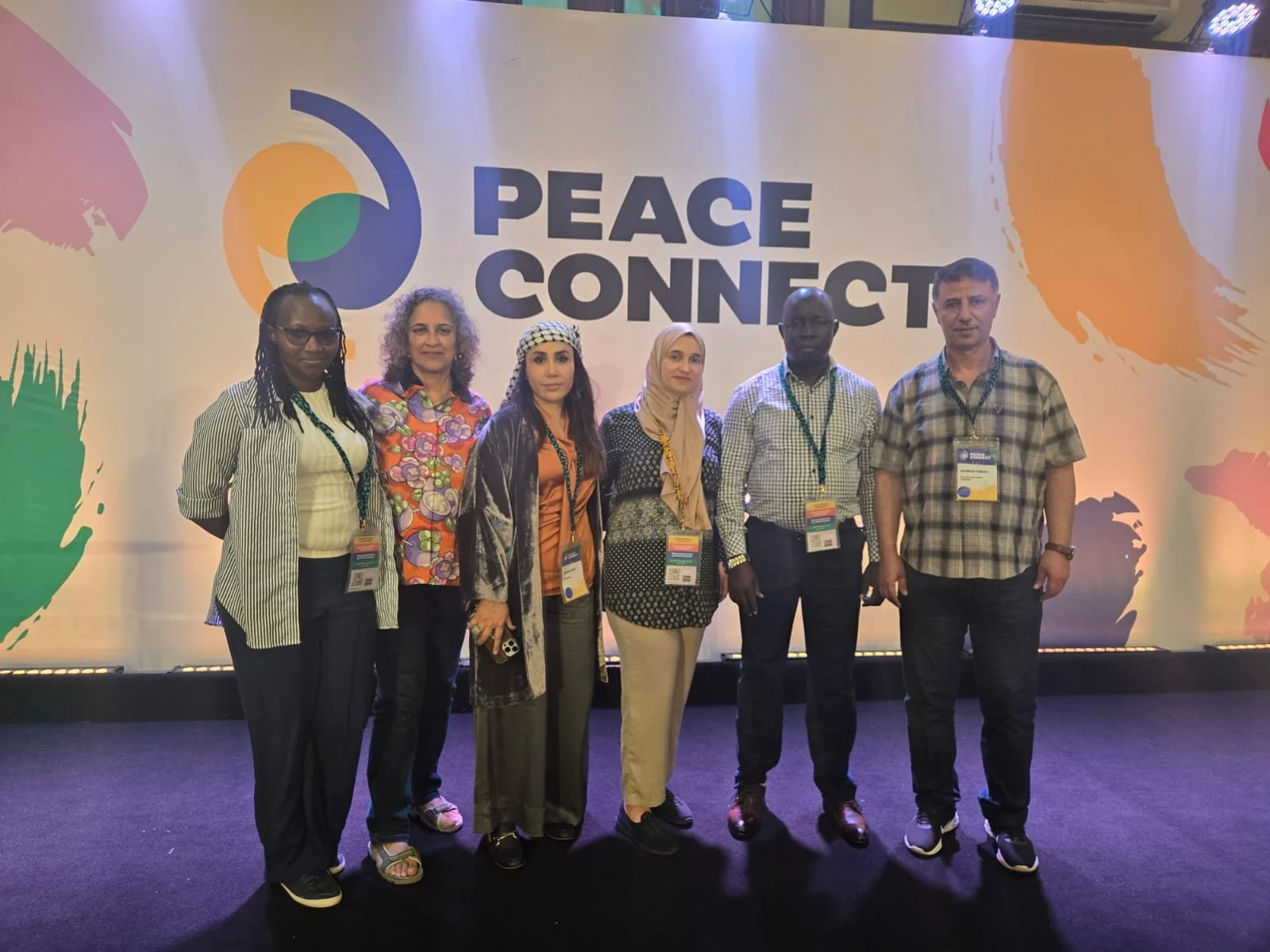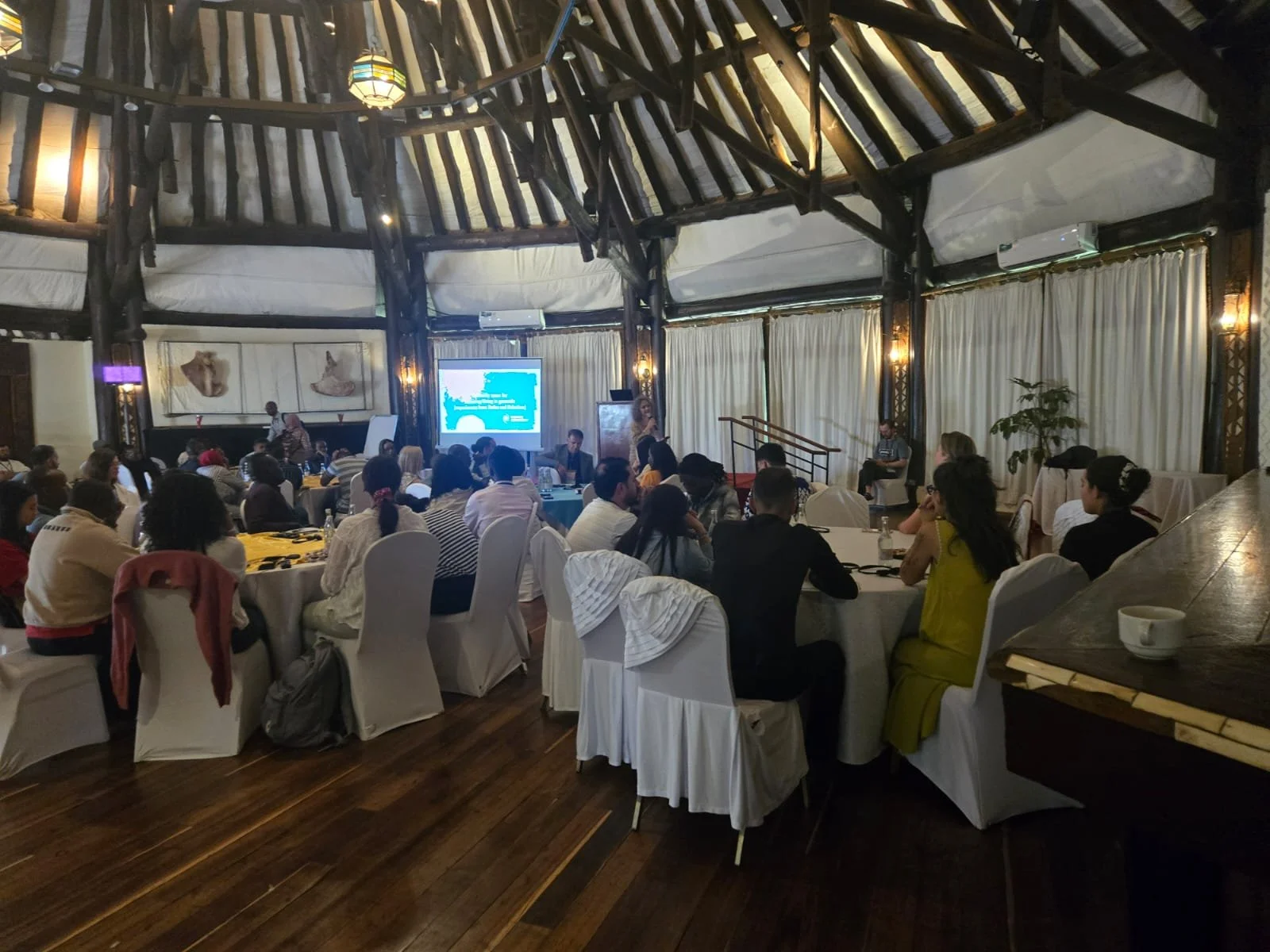NEAR at Peace Connect: Weaving Solidarity Across Continents
By Wejdan Jarrah, NEAR’s Regional Representative for MENA and Advisory Group Member of Peace Connect
From 13 to 17 October 2025, Nairobi, Kenya hosted Peace Connect, an inaugural gathering that brought together 540 peacebuilders from 85 nations. It was a sanctuary of hope, focussed on building community, sharing deeply personal stories of resilience, and reimagining what locally-led peace truly means. NEAR was not merely a participant but a co-architect, playing a key role within the Advisory Group. The event brilliantly prioritised transnational solidarity, psychosocial care, and the amplification of voices from the Global South. It was an experience both monumental and deeply intimate.
What emerged from those five days felt like the birth of a movement. Vrinda Dar, NEAR's Membership Director, reminded us that NEAR is a movement of local leaders committed to a fair, inclusive, equitable, dignified, and truly locally-led aid system. Her words highlighted the critical role NEAR members play in transforming the aid eco-system by empowering local agency and shifting power, resources, and decision-making to those closest to the world's most pressing challenges. This inspiring message was immediately followed by powerful testimonies that truly cracked open hearts, vividly bringing to life the profound urgency and unwavering spirit of locally-led peace.
Among these powerful voices, several resonated deeply:
Sameera Noori from the Afghanistan Localisation Lab articulated the vital importance of resources reaching local communities, highlighting how grassroots efforts sustain hope.
Luate, a peacebuilder from South Sudan, shared moving insights on fostering reconciliation through human connection and empathy.
Mahmoud Hamada from the Palestine Localisation Lab offered a poignant perspective on peacebuilding under occupation, stressing the imperative for international actors to empower local expertise.
Faith Chelangat Tonui, an advocate for Women and Youth, Peace and Security in Kenya, compellingly argued for the central role of women's and young people’s leadership in all peace processes.
María Rudecinda Orellana from El Salvador brought a powerful Central American perspective, focusing on restorative justice and community healing driven by local wisdom.
The urgency of locally-led action was further underscored by frontline testimonies, perhaps none more impactful than that of Amjad Shawa, a leader from Gaza. His searing account detailed the daily struggle for survival and the immense courage of local aid workers.
"In Gaza," Shawa declared, "our communities are not just surviving; they are fiercely creating life, innovating peace, and demonstrating resilience every single day. We are the first responders, and we hold the solutions." It was a powerful, undeniable call to action.
These diverse narratives became the beating heart of Peace Connect, affirming that true transformation begins with amplifying those closest to the challenges. The movement for locally-led peace is deeply human, driven by courage, profound insight, and an unwavering commitment to building lasting change from the ground up. It was an honor to witness.
What Peace Connect Achieved
Peace Connect emerged as a profound space for solidarity. In this haven, peacebuilders from regions scarred by conflict, like Gaza and Sudan, found a shared heartbeat and a collective yearning for peace. The trauma-informed design, complete with quiet wellness corners, created a safe environment, fostering deep reflection on healing, resilience, and the power of local wisdom. It was truly a space where everyone could breathe and just *be*.
A deeply impactful theme throughout the event was the profound importance of internal strength and locally-driven solutions. Luate, a peacebuilder from South Sudan, eloquently articulated this truth after powerful testimonies from Dr. Abdulhamed (Sudan), Zahra (Sudan), and Mrs. Rand (Palestine): "peace begins within us, and that forgiveness and resilience are the strongest tools we have to rebuild our communities." This sentiment was palpable, especially as Mrs. Rand shared her poignant story of Palestinian resilience, illustrating how joy and strength can emanate from within, even amidst unimaginable hardship, inspiring community rebuilding.
These discussions naturally extended to the urgent emphasis on mental health and the invaluable role of cultural practices in healing. It became clear that while external aid is vital, the most profound and sustainable forms of recovery often blossom from indigenous practices and an empathetic understanding of psychological well-being. This perspective marked a significant shift, acknowledging the deep trauma experienced by communities and highlighting the necessity of embedding holistic care into every peacebuilding strategy.
Over five intense days, the collective experiences and sharp insights shared by leaders like Faith Chelangat Tonui (Kenya), María Rudecinda Orellana (El Salvador), Sameera Noori (Afghanistan), and Mahmoud Hamada (Palestine) offered a powerful, living roadmap for sustainable peacebuilding. These key learnings profoundly transformed my understanding of the challenges and opportunities for peace:
Advancing Localised WPS Agendas: Faith Chelangat Tonui passionately championed co-creating Women, Peace and Security (WPS) and Youth, Peace and Security (YPS) initiatives deeply rooted in local contexts, moving beyond "one-size-fits-all" approaches to truly empower women and the youth in peace processes.
Addressing Invisible Violence and Healing Traumas: María Rudecinda Orellana drew critical attention to the often-overlooked "invisible violence" impacting post-war societies, emphasising the urgent need for comprehensive healing and restorative justice for lasting peace.
Building Sustainable WPS Movements from the Ground Up: Sameera Noori underscored that future WPS movements must amplify local voices, dismantle structural barriers, and unequivocally center women's agency, drawing vital lessons from Afghanistan.
Catalysing a Shift in Power to Local Actors: Mahmoud Hamada powerfully articulated that united local voices can effectively pressure international and funding agencies for fairer partnerships, decisively shifting power and resources directly to communities. This was reinforced by Luate's observations on self-sufficiency models, like Ritah's agricultural center in Nepal, demonstrating how local efforts can define success and reimagine aid.
Peace Connect was far more than a conference; it was a powerful affirmation for all 540 peacebuilders, reminding us that we are not alone. It was a unique space where laughter mingled with tears, strategies were honed, and dreams of a more just future were collectively envisioned. NEAR's unwavering commitment, woven into the event's fabric, reinforced the movement's dedication to dignity, solidarity, and the belief that solutions reside closest to the problem. We returned with renewed hope and the profound knowledge that a global community stands ready to champion building peace from the ground up, ensuring lasting transformation and impact for everyone.



